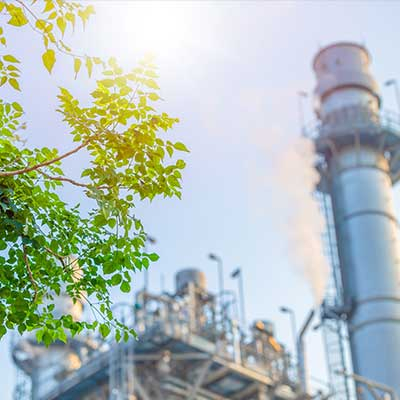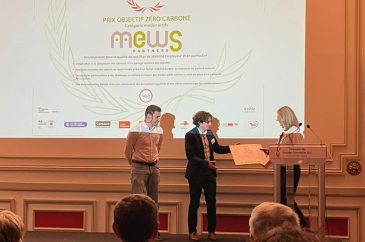EXPERTISE
SECTORS
Environmental Performance
“ Improving the environmental performance of the industry by activating relevant technical levers, data, and skill development.”

A key challenge for the Industry
The industry, which accounts for approximately 20% of global greenhouse gas emissions, has a crucial role to play in reducing CO2 emissions and, more broadly, preserving our ecosystem. It must also demonstrate resilience to ensure its sustainability.
To succeed in this transformation towards more sustainable models, the industry must address five main challenges:
- Evolution of the business model
- Consumer expectations for more sustainable products/services
- Development of new offers/services related to circularity
- Transition to cleaner technologies
- Regulatory compliance
- EU Green Deal aiming for carbon neutrality by 2050
- “Fit for 55” package presented by the EU in July 2021
- Sectoral and country-specific adaptations of European standards
- Competitiveness
- Impact on profitability of compliance and carbon taxation
- Sometimes required CAPEX for implementing certain actions
- Opportunities for industrial players to generate savings:
alignment with the “just-in-time” approach, utilization of existing flexibility - Engagement of suppliers and customers
- Collaborative reduction initiatives for upstream scope 3 emissions with suppliers
- Customers financing a portion of the transition to more sustainable models
- Attractiveness and HR challenges
- A strong factor for employee mobilization/engagement
- A differentiator in recruiting new talents
- New skills to be developed
Our value proposition revolves around 8 key offerings
To assist our industrial clients in reducing their environmental footprint, we structure our offerings around three main pillars:
– Setting objectives
– Studying operational levers for reducing the environmental footprint
– Developing new skills
Decarbonization Roadmap
Aligning all stakeholders within the company/department on the level of ambition, initiatives to be undertaken, and key milestones.
Industrial Site Energy Performance
Identifying and implementing operational levers to reduce energy consumption and emissions at a factory.
Eco-design
Reducing the environmental footprint of products/services.
Sustainable Supply Chain
Identifying and implementing strategies to reduce CO2 emissions in the supply chain, successful supplier onboarding.
Supplier onboarding
Engage suppliers in the process of reducing upstream Scope 3 emissions.
Circularity
Exploring opportunities offered by the circular economy at the product, industrial site, or industry level.
ENVIRONMENTAL FOOTPRINT MEASUREMENT
Establishing and implementing a sustainable and industrialized CO2 / RSE data governance within the company, and measuring progress.
New Professions
Supporting the development of new skills and managing change.
Case studies
A team of experts
Related contents
Even before delivering a single unit of products, an industrial company’s carbon footprint is heavily loaded by the carbon footprint of materials, items, components, equipment, services, and other inputs required...
“Reduce emissions” is the new dogma whatever the means of transport envisaged: car, boat, helicopter … Airplanes, of course, are no exception in the industrial challenge of the 21st century....




